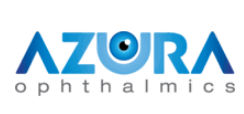预约演示
更新于:2025-05-07
Blepharokeratoconjunctivitis
睑缘炎相关角结膜病变
更新于:2025-05-07
基本信息
别名 BKC、眼睑角膜结膜炎 |
简介- |
关联
3
项与 睑缘炎相关角结膜病变 相关的药物作用机制 GR激动剂 [+1] |
最高研发阶段批准上市 |
首次获批国家/地区 美国 |
首次获批日期1998-03-09 |
靶点 |
作用机制 IL1R1拮抗剂 |
在研机构 |
原研机构 |
非在研适应症- |
最高研发阶段临床2期 |
首次获批国家/地区- |
首次获批日期1800-01-20 |
靶点- |
作用机制- |
在研适应症 |
非在研适应症- |
最高研发阶段临床前 |
首次获批国家/地区- |
首次获批日期1800-01-20 |
6
项与 睑缘炎相关角结膜病变 相关的临床试验ChiCTR2100045073
Application of in vivo confocal microscopy in blepharokeratoconjunctivitis and allergic keratoconjunctivitis
开始日期2021-04-05 |
申办/合作机构- |
CTR20190487
重组人白细胞介素-1 受体拮抗剂(rhIL-1Ra)滴眼液治疗轻、中度睑缘炎相关角结膜炎(BKC)的安全性和有效性的IIa 期临床试验
评估不同剂量rhIL-1Ra 在轻、中度BKC 受试者中的安全性和有效性
开始日期2019-04-18 |
申办/合作机构 |
NCT03383276
A Phase 1, Dose Escalating Study of the Safety, Tolerability, and Pharmacokinetics of IL-1-Ra Topically Administered to Eyes of Healthy Adult Subjects
The purpose of this study is to assess the safety and tolerability of ocular administration of Topical Interleukin-1-Receptor Antagonist in healthy volunteers. Additionally, the PK of Interleukin-1-Receptor Antagonist will be assessed.
开始日期2017-12-18 |
申办/合作机构  首都医科大学附属北京同仁医院 首都医科大学附属北京同仁医院 [+1] |
100 项与 睑缘炎相关角结膜病变 相关的临床结果
登录后查看更多信息
100 项与 睑缘炎相关角结膜病变 相关的转化医学
登录后查看更多信息
0 项与 睑缘炎相关角结膜病变 相关的专利(医药)
登录后查看更多信息
98
项与 睑缘炎相关角结膜病变 相关的文献(医药)2025-05-01·Survey of Ophthalmology
Pediatric blepharokeratoconjunctivitis: A challenging ocular surface disease
Review
作者: Ruiz-Lozano, Raul E ; Homar Paez-Garza, J ; Rodriguez-Garcia, Alejandro ; Morales-Mancillas, Nallely R ; Ortiz-Morales, Gustavo
2025-04-01·Cornea
Ocular Rosacea: An Updated Review
Review
作者: Morales-Wong, Fernando ; Graue-Hernandez, Enrique O. ; Navas, Alejandro ; Ortiz-Morales, Gustavo ; Ramirez-Miranda, Arturo ; Loya-Garcia, Denise ; Mohamed-Noriega, Karim ; Vera-Duarte, Guillermo Raul
2025-02-18·International Journal of Ophthalmology
Clinical manifestation and management of severe blepharokeratoconjunctivitis combined with corneal perforation
Article
作者: Li, Su-Xia ; Li, Xu ; Hou, Ping ; Qi, Xiao-Lin ; Gao, Hua ; Zhang, Ting ; Shi, Wei-Yun
分析
对领域进行一次全面的分析。
登录
或

生物医药百科问答
全新生物医药AI Agent 覆盖科研全链路,让突破性发现快人一步
立即开始免费试用!
智慧芽新药情报库是智慧芽专为生命科学人士构建的基于AI的创新药情报平台,助您全方位提升您的研发与决策效率。
立即开始数据试用!
智慧芽新药库数据也通过智慧芽数据服务平台,以API或者数据包形式对外开放,助您更加充分利用智慧芽新药情报信息。
生物序列数据库
生物药研发创新
免费使用
化学结构数据库
小分子化药研发创新
免费使用


